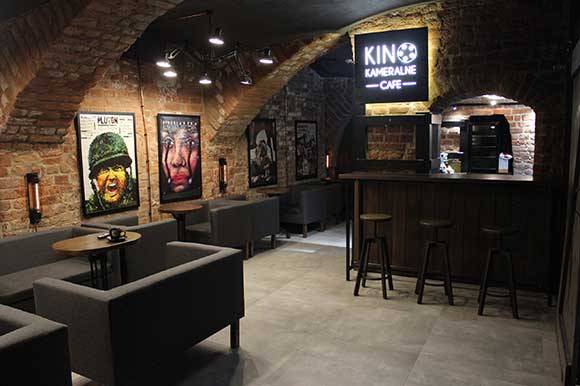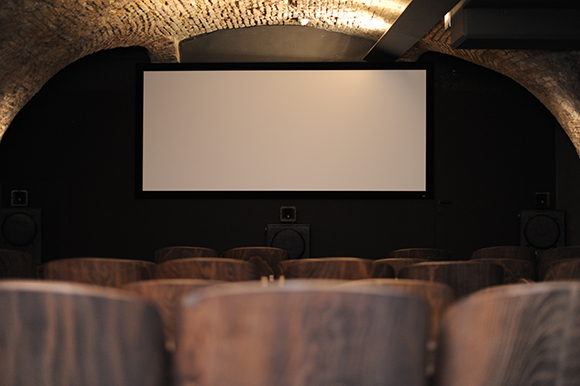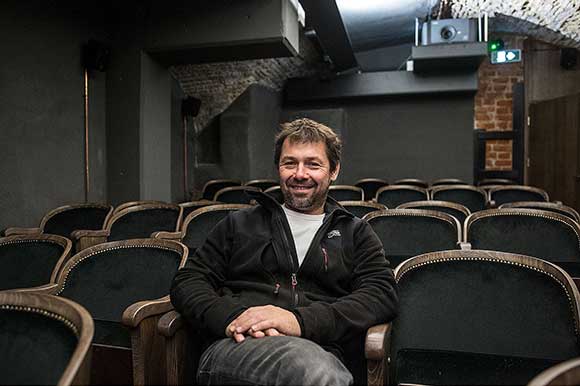 The history of the place is well connected with cinematography. In 1937, Villa Kuschel, the owner of several cinemas in Gdańsk, purchased the plots 57 and 58 to build an entertainment complex which was a part of the Tobis-Palast cinema, designed by Karl Buchmann. The cinema was opened soon after the beginning of the Second World War, on 3 November 1939.
The history of the place is well connected with cinematography. In 1937, Villa Kuschel, the owner of several cinemas in Gdańsk, purchased the plots 57 and 58 to build an entertainment complex which was a part of the Tobis-Palast cinema, designed by Karl Buchmann. The cinema was opened soon after the beginning of the Second World War, on 3 November 1939.
In an underground cave, in the middle of the old town and under a medieval ceiling, the cinema hall of 48 renovated seats and a charming café in a retro style helps its guests feel good. Moreover, there is no mobile phone range so they don’t have to turn their phones off.
FNE: What is the biggest challenge of running a cinema such as yours?
Piotr Gładkowski: On the one hand, as a private cinema we must take care of the budget and effective management. Proceeds from tickets and cinema operations must ensure the team's remuneration and the operating expenses.
On the other hand, by screening films we want to raise issues that affect the public awareness. Often these are not easy topics, they don't help the viewer relax, they require thinking and reflection, while people often want to come to the cinema to relax after their daily struggles with life.
Finding the balance between the abovementioned two sides is most difficult for us and requires a lot of work, especially in the field of creativity.
FNE: What kinds of films do you prefer to screen and why?
Piotr Gładkowski: I really like the feeling when the film draws me in and I forget where I am. I can then identify with the hero and fully understand their point of view on the world. It moves me. That's why we try to show such films. They must be of an appropriate level of quality, image and script. It's also best when they talk about things that are important, even to only one person, even if they are less relevant to others. Such films are most important for us when they show human emotions, problems and relationships.
FNE: The cinema is home to many festivals, events and film weeks. Why are these important and what do they achieve?
Piotr Gładkowski: Many events and meetings occasioned by film screenings are the reason why films are so well understood. They cause reflection and strengthen the director's message. Around these events a "micro-community" has also been created and various points of view on different problems are developed there. All of the above serves to deepen the knowledge of others, the tolerance and empathy.
Festivals and reviews are also an opportunity for unknown and newcomer artists. I think that such events bring other world cultures closer, so that people can understand each other better despite their differences.
FNE: What is the role of Europa Cinemas for cinemas such as your cinema and why is it important?
Piotr Gładkowski: We were very pleased to be admitted to Europa Cinemas in 2019. I believe that a small studio cinema with a mission has an important role for the social development and therefore it is worth supporting. We are not a corporation for which the financial results count first and foremost. This is not a priority for us, though it is also important.
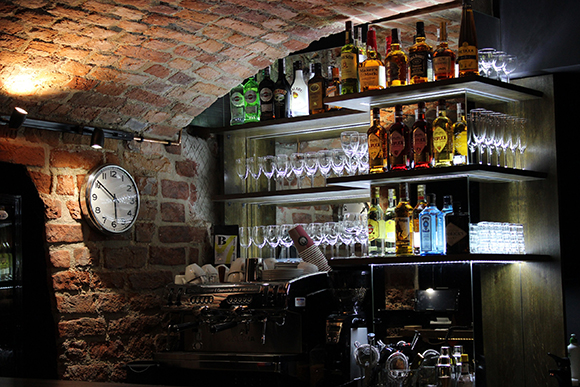 In my opinion, the support we count on from Europa Cinemas helps us choose those films that are valuable but not commercial, demanding from the viewer, but not box office hits. I also think that it is important to share experiences about cinema, because there is a lot of room for creativity and development in many directions. Europa Cinemas seems to be an excellent platform for exchanging ideas. The more creative heads, the more good ideas!
In my opinion, the support we count on from Europa Cinemas helps us choose those films that are valuable but not commercial, demanding from the viewer, but not box office hits. I also think that it is important to share experiences about cinema, because there is a lot of room for creativity and development in many directions. Europa Cinemas seems to be an excellent platform for exchanging ideas. The more creative heads, the more good ideas!
FNE: How does a cinema like yours serve the local community?
Piotr Gładkowski: The answer to this question is more complex. Our cinema was opened in a place where once there were other cinemas (closed and demolished a few years ago), which the local community got used to. That is why the viewers come to us with great fondness, for the history of this place.
The largest film festival in Poland used to take place here. Now, people who still remember those times meet in the cinema and the café underground. They often talk about it. In addition, we are an alternative to network cinemas in our place. We have films in our repertoire that they do not display in network cinemas. Our cinema has almost 50 seats and it serves to establish new friendships, especially among groups who participate in our periodical series of meetings.
FNE: Can you say something about your work with young audiences?
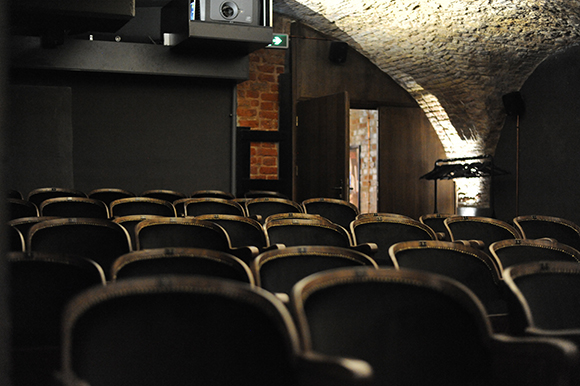
Contact:
Kino Kameralne Café
ul.Lektykarska 4, 80-831
Gdańsk, Poland
Phone: +48 586 907 075
This email address is being protected from spambots. You need JavaScript enabled to view it.
https://www.kinokameralnecafe.pl/

